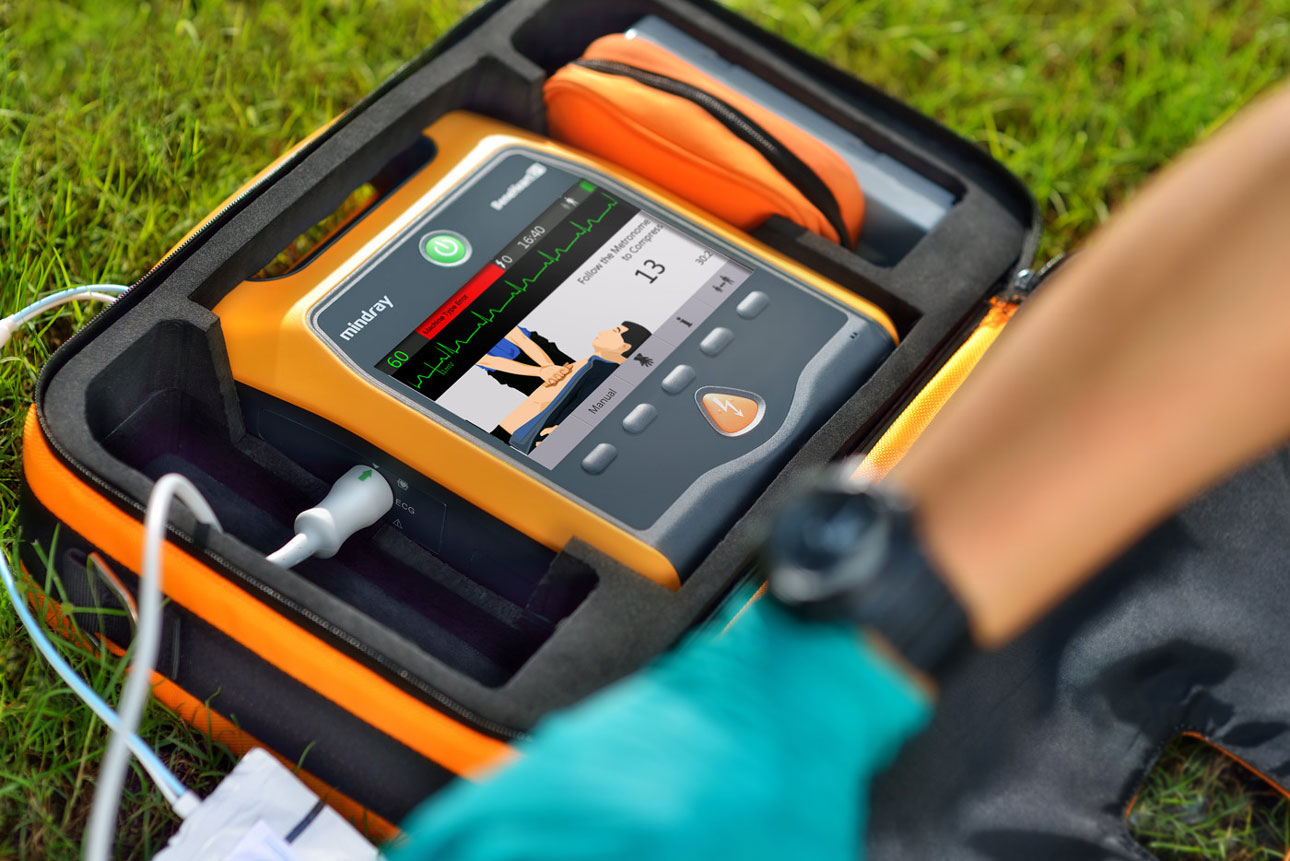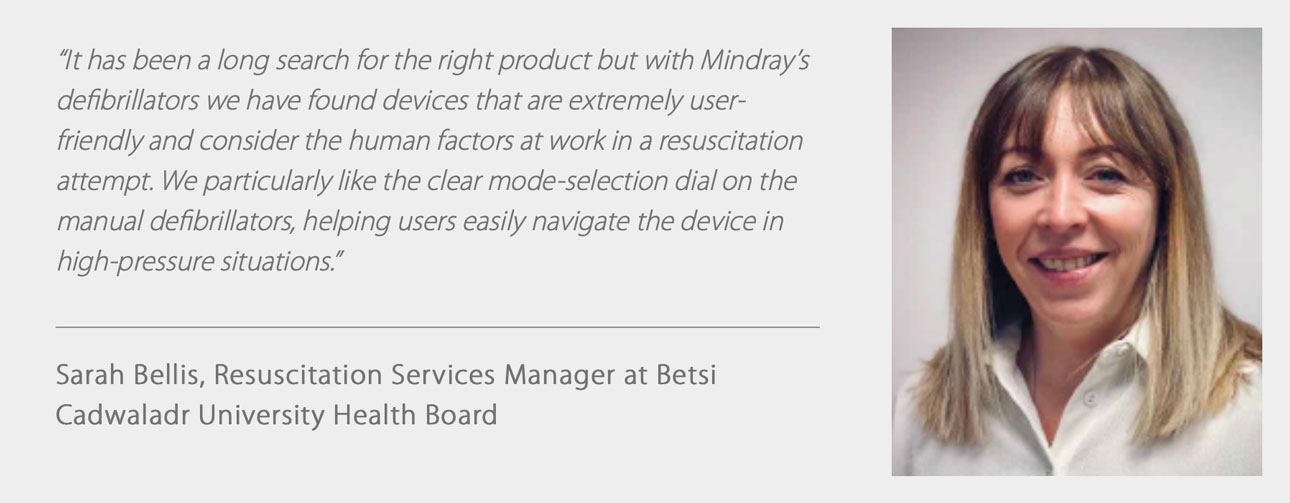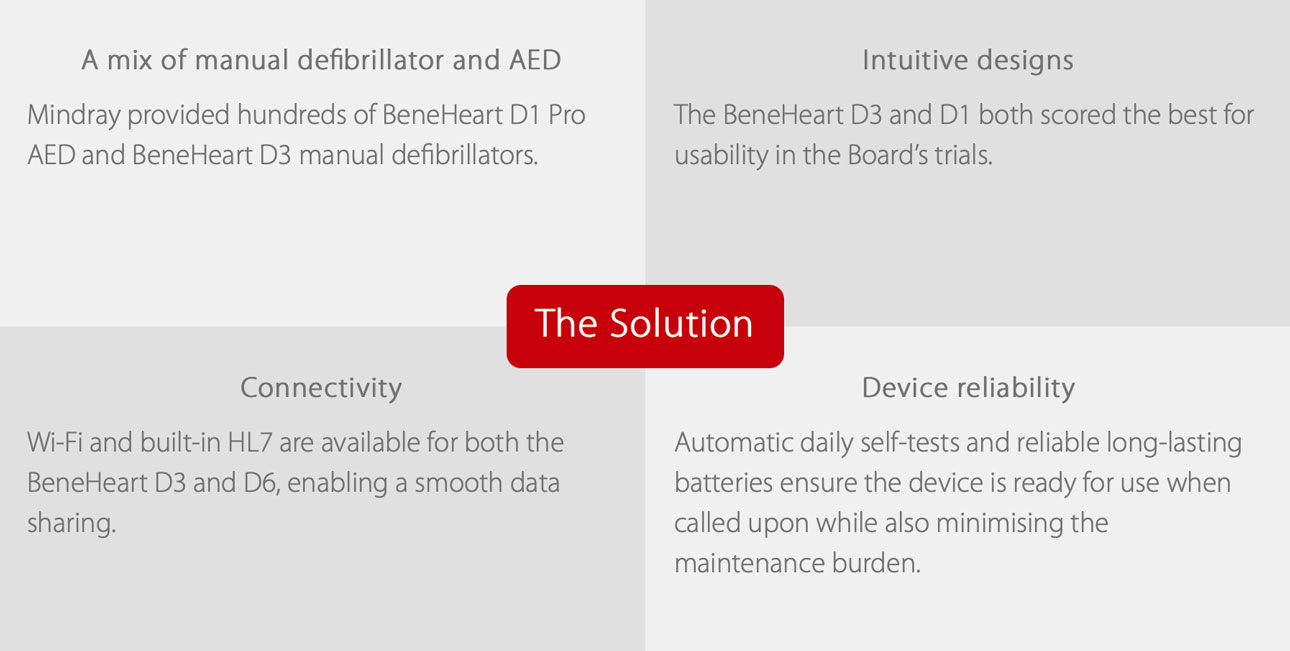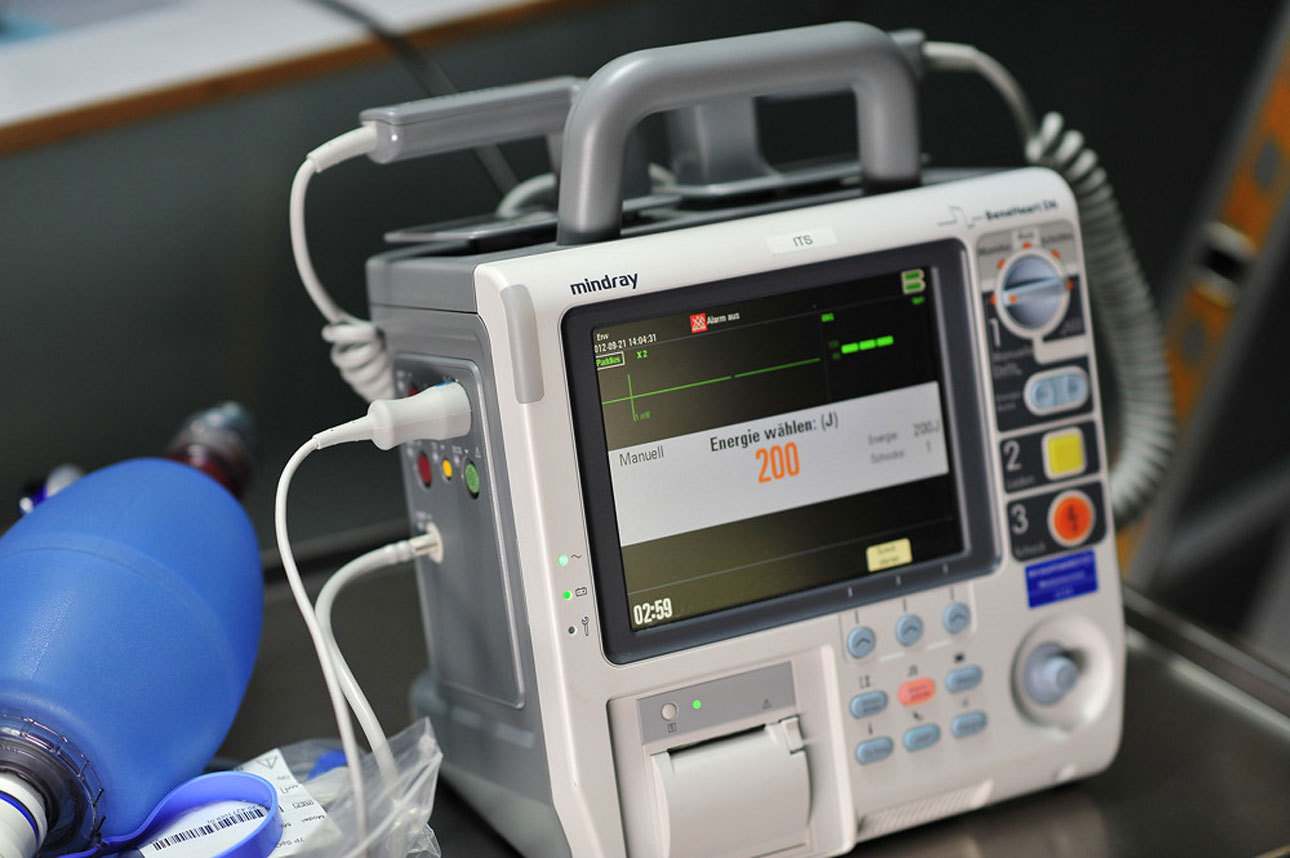In North Wales, UK, the Betsi Cadwaladr University Health Board represents the largest health organisation, with a budget of £1.3 billion and a workforce of over 17,000 staff. The Board covers three main hospitals - Wrexham, Glan Clwyd and Bangor – plus a large geographical area containing many community hospitals, providing primary, community, mental health and acute hospital services for the population of North Wales.
For over seven years, the Betsi Cadwaladr University Health Board aimed to standardise its defibrillators, with a long and complex tender that asked for one supplier to fulfil the equipment requirements of the entire region.
A project with high standards, rigorous requirements
The scale of the project required a supplier that could deliver enough devices for the entire North Wales region, while the Board also required the supplier to provide both AEDs and manual devices.

In addition, there were specific procurement standards for the defibrillators: the devices had to be extremely intuitive to reduce the risk of mis-operation in high-pressure situations, and the devices should be reliable with minimal maintenance requirements.
Comprehensive solution to maximize the usability
Usability is the key to a defibrillator, with intuitive features able to save crucial time in a resuscitation attempt. Studies have shown that when a patient suffers cardiac arrest, success rates for defibrillation drop for every second between CPR and defibrillation shock[1]. Every second counts, which is why Mindray defibrillators offer extremely intuitive operation and powerful performance.

When criteria changed to reflect resuscitation guidelines, the Board became aware of Mindray’s devices and included Mindray in its shortlist. After a series of trials across its three main sites, the Board selected Mindray to help standardise its defibrillator fleet.

Mindray was able to provide a comprehensive solution to meet the requirements of the Board. In future, the connected features of the defibrillators will help further minimize the risks during emergencies.

A huge step to benefit patients and medical staff
With the defibrillators standardised, the Health Board streamlines the training process, thereby further improving patient safety. In addition, the connectivity-ready devices allow the Board to meet future digital healthcare objectives including electronic patient record (EPR) connectivity.
Moreover, the defibrillators have intuitive designs and easy-operating features, which help medical staff mitigate the risk of delay or error, when navigating the devices. Also, it takes only five seconds to shock on the BeneHeart D3 and D6, thereby ensuring an efficient and rapid response to cardiac arrests.

In addition to the reliable devices, Mindray’s service support helps ensure the Board’s maintenance requirements are well met, providing peace of mind for its engineers.
“Our main concern as engineers is the reliability of the defibrillators and service support, resulting in manageable maintenance requirements. Mindray’s products and support ticked all of those boxes, helping us standardise our devices with a company we trust.”
--Mel Lewis, head of EBME at Betsi Cadwaladr University Health Board
Standardising resuscitation equipment in hospitals is recommended by the Resuscitation Council (UK) guidelines and helps remove any variances in training and response, ultimately helping improve patient safety. By standardising their equipment for the entire North Wales region, the Betsi Cadwaladr University Health Board has taken a huge step to benefit their patients and medical staff.
Combining the rapid shock times and intuitive operation of Mindray defibrillators, with reliable support and maintenance, this project has helped the region to deliver a comprehensive resuscitation service with devices and support they can trust.
References:
[1] Edelson DP, Abella BS, Kramer-Johansen J, et al. Effects of compression depth and pre-shock pauses predict defibrillation failure during cardiac arrest. Resuscitation. 2006 Nov;71(2):137-45.
